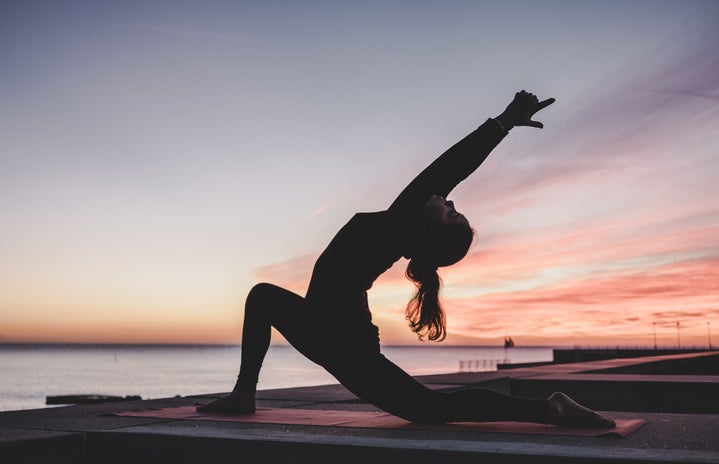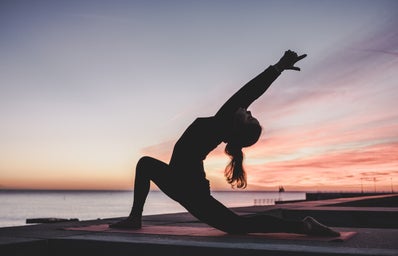Anxiety is your body’s natural response to fear. A normal amount of anxiety, although unpleasant, is healthy and can help you deal with certain situations if and when they arise. Things such as assisting you to act quickly in the face of danger, or encouraging you to be responsible with your finances. However, a problem can present itself when this feeling intensifies and begins to impact your daily life. Oftentimes anxiety disorders can stop you from doing things you enjoy or cause you to isolate yourself from others. Anxiety can manifest itself in many different ways. Common symptoms include an increased heart rate, rapid breathing, restlessness, inability to focus and trouble falling asleep. In cases of severe anxiety, medical treatment, along with psychotherapy, is recommended. Nevertheless, for many people lifestyle adjustments alone can be enough to manage nerves.
Meditation
The effects of meditation on anxiety cannot be overestimated. This practice works to ground you and bring you back to the present moment. Making it ideal to escape a racing mind or a pattern of overthinking. This activity can be done at any time throughout the day and night. Short meditations are available on apps like “Calm”, perfect for taking a minute out of your hectic day to re-centre yourself. Longer meditations, and ones aimed for sleep, can be accessed on “HeadSpace”. These meditations can help relieve trouble sleeping. A lack of sleep can worsen anxiety and lower mood, this can lead to worry regarding sleep, resulting in an unhealthy cycle. Meditation can help eradicate this trend.
Exercise
Scientists have shown that aerobic exercise significantly reduces anxiety by relieving tension in the body and increasing mood. Making regular exercise a part of your routine will naturally lead to your body becoming more tired at the end of the day, which will in turn increase your quality of sleep. Exercise is also linked to higher self-esteem, with body image often intrinsically associated with anxiety, this is a welcome addition to many peoples schedules. This adjustment doesn’t have to be major, with just five minutes of cardio stimulating anti-anxiety effects, there are numerous options such as taking a beginners yoga class with a friend or taking part in the “couch to 5K programme”.
A Healthy Diet
Emerging scientific evidence shows how a nutritionally poor diet can lead to an increased risk of anxiety disorder. Improving your diet can increase mood and lead to a rise in self-esteem. Rich magnesium foods such as avocados and foods high in zinc like cashews or egg yolk have been proven to lower anxiety.
Avoiding Alcohol And Caffeine
Alcohol is a depressant. It changes the level of serotonin, a hormone that modulates mood, in the brain. This can worsen anxiety. After alcohol wears off many people can feel anxious. This induced anxiety can last for 24 hours after drinking. Caffeine is another substance that can exacerbate anxiety and nerves. It affects our “flight or fight” response, leading to a jittery nervous feeling and sometimes inducing an anxiety attack. Avoiding or cutting down on alcohol and caffeine can have huge mental and physical health benefits.
These behaviour changes are widely regarded as good ways to feel less anxious. But, managing anxiety is unique to every individual. What works for one person may not work for another. As I mentioned above, in cases of moderate to severe anxiety a doctor prescribed medication along with therapy is usually the chosen course of action. It’s important to remember that it is ok to feel anxious, there is nothing “wrong” with you and you are definitely not alone in this struggle. There are many supports available, such as Jigsaw, who offer free expert counselling to people aged 12 – 25 across Ireland. There is also a free and anonymous text service in Ireland in which you can receive support if you text HELLO to 50808. Talking about mental health is incredibly beneficial on a personal level and it also helps break down societal stigmas.


